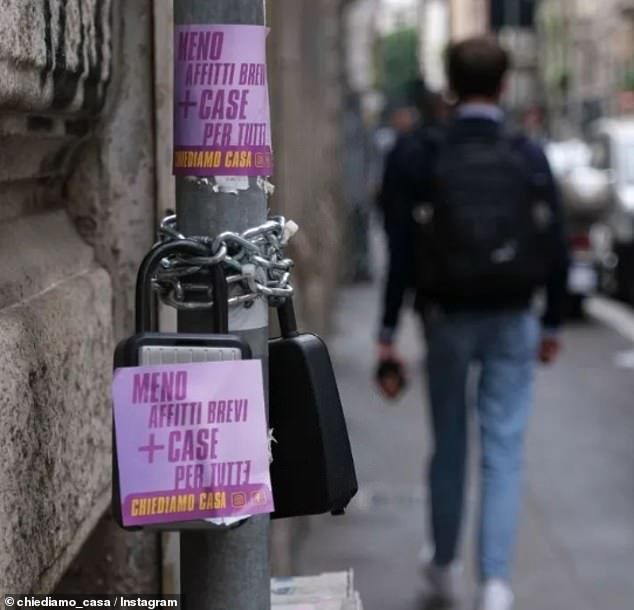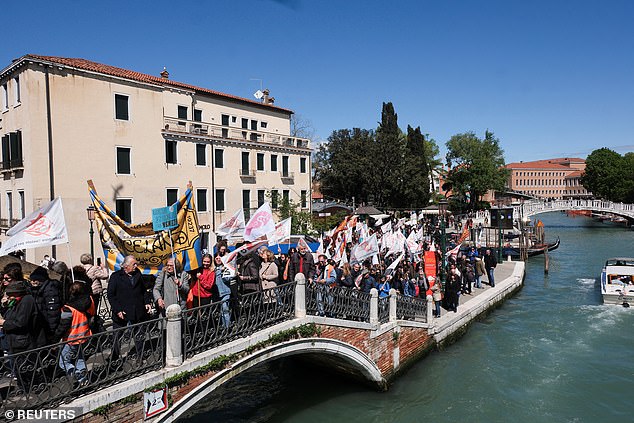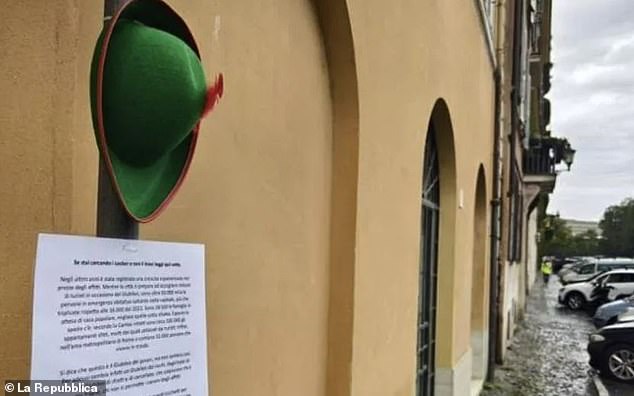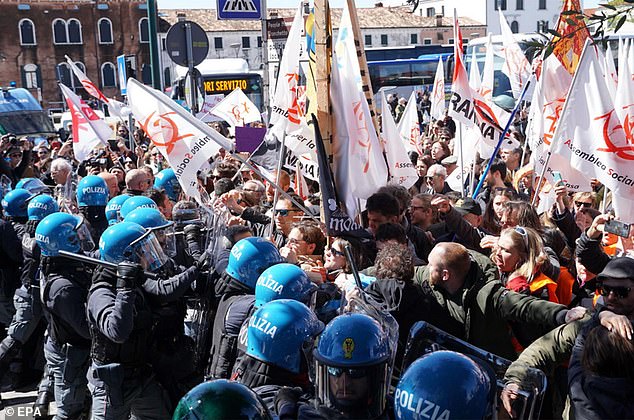Italy’s new war on Airbnb rentals: Key boxes to be banned across the country as tougher measures on short-term rentals amid rising anger against anti-tourism protests
Italy is set to ban Airbnb’s metal key boxes as part of the country’s latest measure to combat overtourism.
Authorities ruled on Tuesday that tourists must now meet the property owner in person to verify their identity.
The ban, which will take effect next year, was introduced for ‘national security considerations’.
Vittorio Pisani, the national police chief, said the crackdown will help authorities keep tabs on “dangerous people” or those “linked to terrorist organizations.”
Italian authorities are concerned that terrorists have started renting properties online using forged documents that are not checked.
“The need has arisen to implement strict measures aimed at preventing threats to public order and security related to the possible harboring of dangerous persons involved in criminal or terrorist organizations,” Pisani said.
It is also believed that the ban is a direct response to the rise in the number of short-term rentals such as Airbnb across Italy.
Metal key boxes have become a symbol of overtourism in Venice, Florence, Rome, Naples and other cities.
Italy to ban Airbnb metal key boxes nationwide in latest measure to combat overtourism (file photo)

Locals in Milan and Florence are protesting against Airbnbs by putting stickers on key boxes that allow tourists to access their rented accommodation

People protest against the introduction of the registration and tourist tax to visit the city of Venice for day trippers on April 25
They are often attached to fences, balustrades and posts and allow guests access to the property after receiving a code sent via text message or email.
The ban was welcomed by Roberto Gualtieri, the mayor of Rome, who said the metal key boxes were “ruining our streets.”
However, critics have argued that the measure ‘discriminatory’ and would harm local businesses.
The move follows a series of popular uprisings against Airbnbs and short-term rentals in Italy this year.
Last month, activists in Milan destroyed metal key boxes across the city with their slogan ‘fewer short-term rental properties, more homes for everyone’.
“Let’s limit tourist rentals, let’s protest against those who want to drive us out of the city with unsustainable rents for inaccessible houses,” the activists wrote in a call to action in early November.
“We want a city for everyone and the right to live in decent housing,” their statement said.
And in Florence, where nearly a third of the city’s apartments are listed on Airbnb, protesters used stickers with the slogan “Let’s save Florence so we can live in it.”
Meanwhile, in Rome, activists calling themselves Robin Hoods removed several safes from properties in Rome, blocking travelers from entering their holiday homes.
Letters were attached to lampposts in the city under Robin Hood felt hats, describing the vandalism as ‘the first’ attack on ‘the rich’.
‘If you’re looking for the key safes and can’t find them, read this. We are rebelling,” read one note shared by local media.
‘We removed these key boxes to challenge the city’s sell-out of short breaks, which is alienating locals and leaving residents on the streets.’
This summer there has been intense backlash against tourists in Mediterranean hotspots, with locals decrying what they see as lax regulations on tourist accommodation, making it harder to find affordable housing.

Robin Hood hats were attached to lampposts in Rome with a letter deploring tourism

Members of social centers confront police officers during a demonstration in Piazzale Roma against the introduction of an entrance fee for day trippers in the city, in Venice, April 25
The rise of rental companies such as Airbnb has led some hosts to switch from renting to residents to renting out rooms or apartments to short-term visitors.
As a result, the total housing supply has decreased, causing rental costs to rise.
According to the activists, rents have risen ‘exponentially’ in recent years. “This is only our first action against the Holy Year of the Rich,” they read in their letters.
More than 35 million tourists visited Rome last year, making it a record year and the number of visitors at an all-time high.
The year before, as Rome recovered from the pandemic, some 15 million arrived – with 30 million overnight stays, a 176 percent increase on 2021.
Next year, Rome and Vatican City will also host the Jubilee ‘Holy Year’, which is expected to attract some 30 million visitors from around the world and put extra pressure on locals.
But some residents worry that keeping tourists away will affect their livelihoods or tarnish their city’s reputation.
Protesters clashed with police in Venice in April over a new ‘tourist tax’, which would require visitors to pay an ‘entrance fee’ of €5 for short stays.
Protesters armed with signs and banners lined the Italian city’s historic canals to show their contempt, met by riot police with batons.
Critics argue that the €5 (£4.30) fare, which initially came into effect over the summer, is unlikely to make a significant dent in the approximately 30 million trips made to Venice each year.
In a surprising statement, former mayor Massimo Cacciari went so far as to suggest that tourists should outright refuse to pay the “absurd” entrance fee, arguing that they are “already paying for everything.”
